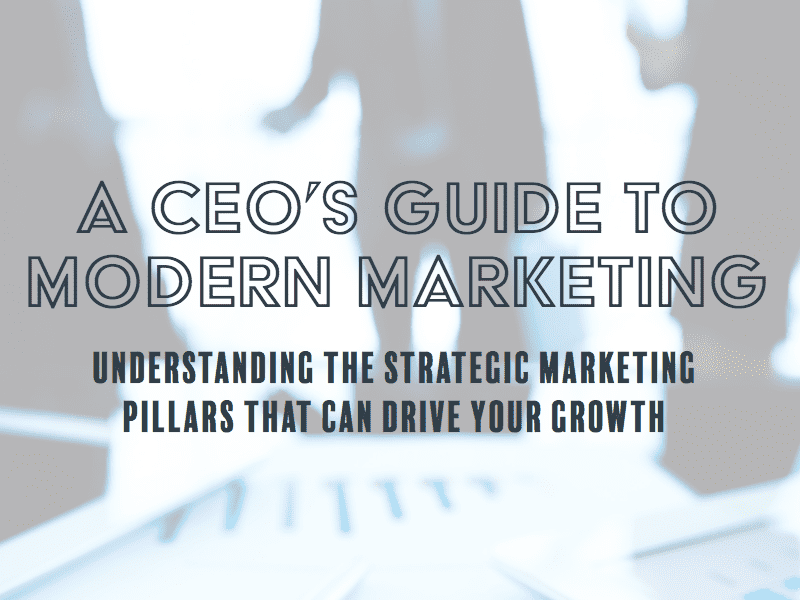Marketing vs. Business Development: What’s the Difference?
Business development and marketing are frequently used interchangeably, especially in B2B firms using both to grow their businesses. And sometimes, due to a lack of understanding, the two functions can compete for resources. However, both can ultimately contribute to growing your B2B business, if you know how to leverage their strengths. There’s a lot of opportunity in changing it from a marketing vs. business development dynamic to getting the two to work in tandem.
What’s the role of the Marketing Department?
Marketing’s role is to leverage the wants and needs of a B2B’s target market to develop leads. In order to be effective, a strategic marketing plan should be developed, one that establishes the company’s overall message, benefits, and capabilities. Then the Marketing Department should be responsible for executing a number of marketing tactics (e.g., the design of marketing materials, website updates, email campaigns) based on that strategy. They must also ensure that all of the information online and in other materials is consistent and accurate.
The marketing department’s role in a B2B includes, but is not limited to:
- Refining and communicating the company’s current service offerings and identifying new ones that should be added;
- Providing education about the company and its services;
- Creating and maintaining a professional and consistent image for the company;
- Managing visibility through public relations, the website, and other marketing collateral;
- Measuring success toward reaching marketing goals; and
- Monitoring the effectiveness of campaigns.
In order for B2B marketing strategies to be successful, the team needs a diverse set of skills. For example, they should know industry dynamics, have the ability to think strategically, and be able to measure their success by tracking completed tasks. When working out how to structure a marketing department, companies should hire a balanced team with the skills needed to execute on their strategy. They should also empower their hires to fulfill tasks and take initiative.
What is the role of Business Development?
Business development can begin after a marketing plan is in place. The sales and business development department should be responsible for forming partnerships and strategic relationships with referral sources and other professional contacts in target markets in order to bring in new clients. This may also include developing new markets in different geographic areas. Business development specialists should be expected to join trade associations and attend trade shows, develop prospect and referral source lists, and assist in following up after direct mail campaigns via email and phone calls.
A successful B2B business development professional must possess many key skills and traits. These include knowing the industry dynamics, managing time strategically, making personal connections, and being resourceful. The success of the person in this position is easily measured by the number of referral sources and prospects, and the amount of new work gained.

Less Marketing vs Business Development, More Working Together
The marketing and business development departments have many opportunities to collaborate, which your company should take advantage of in order to maximize efforts and ensure that tasks are not duplicated. To ensure your company uses its marketing and business development resources efficiently, these six tasks should be coordinated between both departments:
- Strategy and Planning – smooth communication of firm messaging
- Messaging – a message should be developed based upon how the company is qualified to meet the wants and needs of a client
- Content – items created by marketing, such as articles, blog posts, and webinars should be based upon information on topics that the target audience wants to learn more about
- Hosted Events – marketing handles the coordination and promotion of the event, while business development provides personal outreach following the event
- Speaking Opportunities – the marketer successfully pitches a business leader to speak at an event, and the leader or other business developer meets prospects, hands out business cards and follows up post-event
- Client Feedback – both marketing and business development must be aware of changes to client needs and challenges and adjust how the company responds to these
Marketing and business development possess skill sets that complement each other and work together to help a B2B business thrive. It is critical for companies to take advantage of the strengths from each department while also recognizing their differences.
A firm that understands how marketing and business development functions can interact and support one another will benefit in the future and have a higher return on investment.
Want More?
One of the ways that marketing can support business development is by focusing on and refining a professional niche. This can help companies in competitive markets differentiate and grow their businesses.





